
THE VOICE OF INTERNATIONAL LITHUANIA
|
VilNews has its own Google archive! Type a word in the above search box to find any article.
You can also follow us on Facebook. We have two different pages. Click to open and join.
|
Archive for 2011
- Posted by - (0) Comment
Lithuania may raise VAT to trim deficit on lower 2012 growth

Finance Minister Ingrida Simonyte:
Additional budget measures will be needed to meet a planned 2012 deficit goal of 2.8 percent of GDP, with no “other serious alternatives” to higher VAT.
Lithuania’s Finance Ministry lowered its forecast for the economy next year as European demand for exports wanes and said slower growth may require an increase in value-added tax to meet the government’s budget-deficit target.
Gross domestic product will probably expand 2.5 percent in 2012, compared with a September forecast of 4.7 percent, the ministry, based in the capital, Vilnius, said today in an e- mailed statement.
As a result, Finance Minister Ingrida Simonyte said additional budget measures will be needed to meet a planned 2012 deficit goal of 2.8 percent of GDP, with no “other serious alternatives” to higher VAT, the Baltic News Service reported. The tax may be raised by 2 percentage points to 23 percent, she added, according to BNS.
Read more: http://www.businessweek.com/news/
2011-11-30/lithuania-may-raise-vat-to-trim-deficit-on-lower-2012-growth.html
- Bookmark :
- Digg
- del.icio.us
- Stumbleupon
- Redit it
- Posted by - (0) Comment
Chinese-Lithuanian
IT Innovation Centre a
step in right direction!
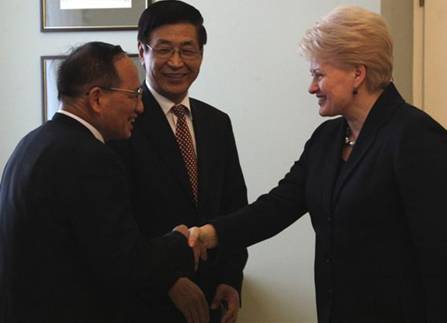
President Dalia Grybauskaitė with Vice Presidents Qu Wenchu and Lu Yong of the Chinese IT giant "Huawei" - to discuss cooperation and investments in the sphere of innovations. The President said the cooperation with "Huawei", is already yielding mutually beneficial results. Vilnius University, "Omnitel" and "Huawei" this week opened an information technologies research laboratory which they believe will become a centre of innovations for the Baltic countries and Eastern Europe.
Text: Aage Myhre, Editor-in-Chief
aage.myhre@VilNews.com
There has been expressed skepticism about some of the so-called foreign investments (FDIs) that have taken place in this country over the past two-three years, as they largely have been paid by Lithuania itself, meaning the country's tax payers, partly as a hollow play to the gallery with the intention of putting the government's results in this field in better light. This week's announced partnership with China appears different. More pragmatic, real and sustainable. I consider the new Chinese-Lithuanian IT Innovation Centre at Vilnius University a step in the right direction!
Lithuania should create more 'basketball business'
The cooperation with China started when Lithuania’s “Omnitel”, the leading Baltic telecommunication company, owned by Scandinavian TeliaSonera, invited Chinese “Huawei”, a leading global information and communications technology (ICT) solutions provider, to a cooperation with the aim to extend Omnitel’s network ahead of the European basketball championship (EuroBasket 2011) that took place in Lithuania earlier this autumn. The cooperation led to the successful deployment of a commercial 1800MHz LTE network for Omnitel to serve the championship.
Omnitel had long been planning an upgrade to its existing network in order to meet increasing data demands, and in May of this year, Huawei was exclusively awarded the Omnitel contract for LTE deployment and GSM/UMTS radio access networks expansion across all of Lithuania.
At EuroBasket 2011, Huawei provided Omnitel with its world-leading Single RAN LTE solution as well as with radio access and transmission networks. As a result, the LTE network was able to achieve downlink speeds of 85Mb/s, making it the fastest mobile broadband network in Lithuania.
The excellent performance of the LTE network during EuroBasket 2011 was an important step in the commercialization process of the Baltic region’s mobile broadband network.
Basketball is known as Lithuania's second religion (after Catholicism). The collaboration between Omnitel and Huawei shows that it also can lead to business and development cooperation. This week's IT Innovation Centre is a tangible proof of that. So why not think more in this direction? There is probably much more of business and FDIs that can be created around the national sport…
The President plays well with business and science!
"Lithuania is among the leading players in the European IT and telecom market. We have not only the most advanced infrastructure but also highly qualified professionals. "Huawei" is one of the most innovative companies in the world. Cooperation with this company will serve to promote more rapid development of innovations as it will open new possibilities in the global IT market," President Dalia Grybauskaitė said at a meeting with the Chinese delegation in Vilnius this week.
The President during her visit to China in October last year participated in the Shanghai World EXPO and agreed with representatives of "Huawei" to organize the training course for Lithuanian students in this company and to establish an information technologies research centre in Lithuania.
In July, ten IT students from Kaunas University of Technology, Vilnius Gediminas Technical University and Vytautas Magnus University already underwent a training course in the Chinese company. This week Vilnius University, "Omnitel" and "Huawei" open in Vilnius a research centre of information technologies the activities of which will include the implementation of research programs, traineeships for researchers, and the development of modern technologies.
Dalia Grybauskaitė also stressed the importance of economic cooperation between Lithuania and China. The shuttle train "Saulė", which was launched last month, connecting China, Kazakhstan and Lithuania, should enhance the bilateral business relations even more, she said.
The President plays truly well with the business and the scientists in this case. That bodes well for a better and more advanced ‘Lithuania of the future’!

In May this year an initial agreement for the establishing of a joint research laboratory at Vilnius University was signed between (L/R) Antanas Zabulis, President of „Omnitel“, Professor Benediktas Juodka, Rector of Vilnius University and Ye Yong, Country Manager for the Baltics of „Huawei Technologies Co”.
To read more, go to our
SECTION 18 – EDUCATION, RESEARCH & DEVELOPMENT
- Bookmark :
- Digg
- del.icio.us
- Stumbleupon
- Redit it
- Posted by - (3) Comment
Chinese-Lithuanian
IT Innovation Centre a
step in right direction!
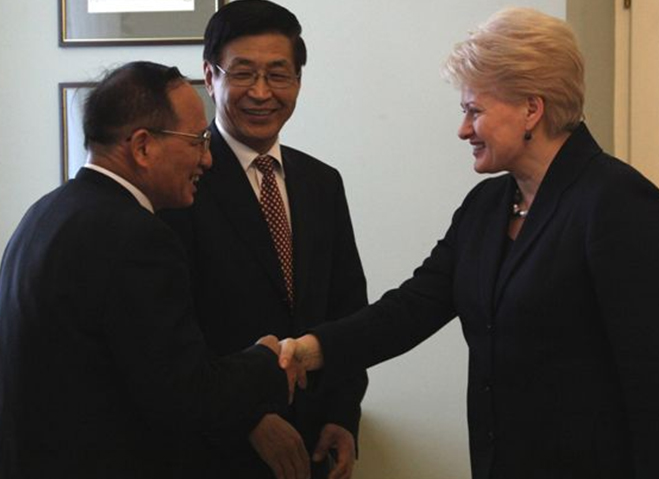
President Dalia Grybauskaitė with Vice Presidents Qu Wenchu and Lu Yong of the Chinese IT giant "Huawei" - to discuss cooperation and investments in the sphere of innovations. The President said the cooperation with "Huawei", is already yielding mutually beneficial results. Vilnius University, "Omnitel" and "Huawei" this week opened an information technologies research laboratory which they believe will become a centre of innovations for the Baltic countries and Eastern Europe.
Text: Aage Myhre, Editor-in-Chief
aage.myhre@VilNews.com
There has been expressed skepticism about some of the so-called foreign investments (FDIs) that have taken place in this country over the past two-three years, as they largely have been paid by Lithuania itself, meaning the country's tax payers, partly as a hollow play to the gallery with the intention of putting the government's results in this field in better light.
This week's announced partnership with China appears different. More pragmatic, real and sustainable. I consider the new Chinese-Lithuanian IT Innovation Centre at Vilnius University a step in the right direction!
Lithuania should create more 'basketball business'
The cooperation with China started when Lithuania’s “Omnitel”, the leading Baltic telecommunication company, owned by Scandinavian TeliaSonera, invited Chinese “Huawei”, a leading global information and communications technology (ICT) solutions provider, to a cooperation with the aim to extend Omnitel’s network ahead of the European basketball championship (EuroBasket.2011) that took place in Lithuania earlier this autumn. The cooperation led to the successful deployment of a commercial 1800MHz LTE network for Omnitel to serve the championship.
Omnitel had long been planning an upgrade to its existing network in order to meet increasing data demands, and in May of this year, Huawei was exclusively awarded the Omnitel contract for LTE deployment and GSM/UMTS radio access networks expansion across all of Lithuania.
At EuroBasket 2011, Huawei provided Omnitel with its world-leading Single RAN LTE solution as well as with radio access and transmission networks. As a result, the LTE network was able to achieve downlink speeds of 85Mb/s, making it the fastest mobile broadband network in Lithuania.
The excellent performance of the LTE network during EuroBasket 2011 was an important step in the commercialization process of the Baltic region’s mobile broadband network.
Basketball is known as Lithuania's second religion (after Catholicism). The collaboration between Omnitel and Huawei shows that it also can lead to business and development cooperation. This week's IT Innovation Centre is a tangible proof of that. So why not think more in this direction? There is probably much more of business and FDIs that can be created around the national sport…
The President plays well with business and science!
"Lithuania is among the leading players in the European IT and telecom market. We have not only the most advanced infrastructure but also highly qualified professionals. "Huawei" is one of the most innovative companies in the world. Cooperation with this company will serve to promote more rapid development of innovations as it will open new possibilities in the global IT market," President Dalia Grybauskaitė said at a meeting with the Chinese delegation in Vilnius this week.
The President during her visit to China in October last year participated in the Shanghai World EXPO and agreed with representatives of "Huawei" to organize the training course for Lithuanian students in this company and to establish an information technologies research centre in Lithuania.
In July, ten IT students from Kaunas University of Technology, Vilnius Gediminas Technical University and Vytautas Magnus University underwent a training course in the Chinese company. This week Vilnius University, "Omnitel" and "Huawei" opened in Vilnius a research centre of information technologies the activities of which will include the implementation of research programmes, traineeships for researchers, and the development of modern technologies.
Dalia Grybauskaitė also stressed the importance of economic cooperation between Lithuania and China. The shuttle train "Saulė", which was launched last month, connecting China, Kazakhstan and Lithuania, should enhance the bilateral business relations even more, she said.
The President plays truly well with the business and the scientists in this case. That bodes well for a better and more advanced ‘Lithuania of the future’!

In May this year an initial agreement for the establishing of a joint research laboratory at Vilnius University was signed between (L/R) Antanas Zabulis, President of „Omnitel“, Professor Benediktas Juodka, Rector of Vilnius University and Ye Yong, Country Manager for the Baltics of „Huawei Technologies Co”.
- Bookmark :
- Digg
- del.icio.us
- Stumbleupon
- Redit it
![]()
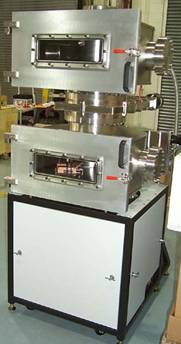
Lithuania sets up representation in Silicon Valley, and has already attracted one Valley company, US Levanta Scientific, to establish a new R&D unit in the Sunrise Valley in Vilnius. Levanta’s customer list includes impressive names like NASA, The Department of the Navy, Massachusetts Institute of Technology, Harvard College, and the Smithsonian Institute.
Lithuania has set up a representation in the Silicon Valley, located in Northern California, in the United States, to raise the country’s awareness among the companies operating in the world’s best known agglomeration of technology businesses and to encourage their investment in Lithuania.
INVEST LITHUANIA has signed a partnership agreement with Noah Mamet & Associates, a strategic consultancy firm, which will be in charge of organising the representation activities, such as presentations, business meetings, events and marketing campaigns.
"Our goal is to target as many US companies as possible in order to attract their attention towards the potential of high technology business development in Lithuania," said Mantas Nocius, Managing Director of INVEST LITHUANIA, commenting on the decision to set up a representation in the Silicon Valley.
One of the latest investment projects announced in Lithuania involves the Silicon Valley as the US company, Levanta Scientific, is to establish a new research and development unit in the Sunrise Valley, based in the capital city Vilnius, through its subsidiary based in the Silicon Valley. The project, valued LTL 16.2 million (EUR 4.7 million), will offer more than 80 jobs.
- Bookmark :
- Digg
- del.icio.us
- Stumbleupon
- Redit it
![]()
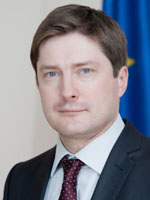
“These trends point to the fact that Lithuania attracts investment to both manufacturing and service sectors. It means that the country is capable of offering proper conditions and enough of competent specialists for various businesses,” said Rimantas Žylius, Minister of Economy.
www.ukmin.lt
A total of 20 investment projects during the first nine months of 2011 with the overall project value at LTL 366 million (EUR 106 million) and more than 2,500 new jobs due to be offered have been confirmed, by signing letters of intent, by the Ministry of Economy and INVEST LITHUANIA.
The deals include five manufacturing projects, and another fifteen are in the service sectors.
The largest manufacturing projects will be carried out by Danspin, the Danish producer of carpet yarn, which invests LTL 41.4 million (EUR 11.9 million) into a new factory in Raseiniai, and Homegroup, the British manufacturer of furniture, which will allocate LTL 18.6 million (EUR 5.4 million) to expand its facility in Klaipėda. The latter deal is the largest in terms of a number of new jobs which is planned to reach 1,100.
The list of the largest service project is led by Call Credit, the UK’s company which is setting an LTL 52.7 million (EUR 15.3 million) customer service centre in Vilnius, and Western Union which is expanding its existing service centre by investing LTL 39 million (EUR 11.3 million). They are followed by GFK Austria which plans to open a representative office by allocating LTL 37.3 million (EUR 10.8 million). The two projects will create 200 new jobs each.
“These trends point to the fact that Lithuania attracts investment to both manufacturing and service sectors. It means that the country is capable of offering proper conditions and enough of competent specialists for various businesses. It is important that some of the projects are planned in smaller cities which usually receive less foreign investment and the creation of new jobs is therefore particularly important there,” said Rimantas Žylius, Minister of Economy.
All five manufacturing projects announced this year are to be implemented in towns and cities other than Vilnius, while smaller cities also attracted two of the service-related projects.
The two latest confirmed projects include a LTL 16.2 million (EUR 4.7 million) investment into a new scientific research laboratory by a US-based company, Levanta Scientific, in Vilnius and a LTL 12 million (EUR 3.5 million) project by a budget carrier Ryanair aimed to establish an aircraft maintenance centre in Kaunas. The projects are to introduce up to 80 and 60 of new jobs accordingly.
“Lithuania records a growing flow of investment into research and development of manufacturing. Also, foreign investors encourage demand for certain professions. For instance, the Ryanair’s new maintenance centre will surely prompt more people to opt for careers as aviation technicians,” said Mantas Nocius, General Manager of INVEST LITHUANIA.
According to Statistics Lithuania, the total accumulated foreign direct investment (FDI) during the first six months of this year amounts LTL 1.411 billion (EUR 408.7 million). The analysis made by the Ministry of Economy suggests that in one year this amount of FDI can contribute to lowering the unemployment rate by almost one percentage point and adding almost LTL 1 billion (EUR 289.6 million) to the country’s gross domestic product.
- Bookmark :
- Digg
- del.icio.us
- Stumbleupon
- Redit it
- Posted by - (0) Comment

A future of green life and energy for Lithuania?

In the German city of Freiburg environment and economy are not antagonists. On the contrary, the environmental economy is the leading business sector in both town and region.
- Bookmark :
- Digg
- del.icio.us
- Stumbleupon
- Redit it
- Posted by - (1) Comment

A future of green life and energy for Lithuania?

In the German city of Freiburg environment and economy are not antagonists. On the contrary, the environmental economy is the leading business sector in both town and region.
The town Freiburg in South-West Germany is the home of solar technology pioneers. The sunny university town has been writing solar success stories for more than 30 years. Maybe something similar could be done in Lithuania?
The view on one side of Freiburg takes you to Schlierberg; on the other, it stretches as far as the meadows and forests of Schönberg. On top of this long office and shop building in Merzhauserstrasse, solar architect Rolf Disch has built a number of penthouses. They aren’t normal penthouses. Barbara Schweer, who has now lived in one of the houses for two years with her husband Martin Hoyer and their daughter, produces some impressive energy figures: the family need less than 4,000 kilowatt hours a year for heating and hot water, which corresponds to the heating value of less than 400 litres of oil.
The heat is piped in from a nearby wood-fired power plant. “In the first year we only had heating costs of 300 euros,” says Schweer. That is really an achievement in a house with 167 square metres of living space. Optimal heat insulation is part of the recipe for success. Even on January days when temperatures fall to around freezing point, the house often doesn’t need any heating once the sun comes out from behind the clouds for a while. That’s because the south-facing glass façade captures the oblique winter sunlight, while later in the year the high summer sun is prevented from shining directly into the rooms – the house has been very intelligently designed. And the family all agree that the interior climate is ideal inside a building that contains large amounts of wood.
“Plus Energy House” is the name Architect Rolf Disch uses to describe the building, because over the year it produces more energy than its inhabitants consume. The solar electricity generating unit on the roof feeds nearly 9,000 kilowatt hours of electricity a year into the grid. If you deduct the family’s own electricity needs as well as the heating energy they use, you’re left with an annual surplus of some 2,000 kilowatt hours. That’s also well worth it financially: the monthly costs of just under 100 euros for electricity and heating are offset by income of almost 400 euros from the solar generator. Architect Disch speaks self-confidently of a “monthly energy income” and prophesies: “Additional costs for housing will eventually be transformed into additional income.” Disch has already built 47 of these plus energy houses at the foot of the Schlierberg in Freiburg – some as penthouses, some as terraced houses.
Not far away stands the Heliotrop – yet another innovation from Disch’s office. It is a revolving solar house that follows the sun, thereby enabling it to draw the maximum benefit from the incoming rays. It was the first plus energy house in Germany and is now one of Freiburg’s most frequently visited solar projects.
Freiburg really doesn’t have any shortage of solar innovations. They also include the solar factory. During the mid-1990s, when the future of the solar industry in Germany was still rather uncertain, Georg Salvamoser boldly founded a solar module factory in Freiburg and was able to celebrate the nationwide launch of a highly promising industry in February 1996. Although other German solar firms overtook it long ago in terms of size, Freiburg im Breisgau can still claim it was the pioneer – as is so often the case when innovations in the solar energy field are concerned.
The main pacesetter for Freiburg’s solar progress is the Fraunhofer Institute for Solar Energy Systems (ISE). With a total of over 500 employees and more than 18,000 square metres of offices, laboratories and test areas, the ISE is today the largest solar research institution in Europe. The Fraunhofer Institute is also so successful because the staff here steadfastly maintained their belief that solar energy would eventually make a breakthrough. The new institute building, which was only opened in autumn 2001, soon became too small again and some of the scientists and equipment have already moved to the neighbouring building and the Solar Info Center (SIC).
The SIC is another highlight of Solar City Freiburg: the modern building near Freiburg’s exhibition and conference centre is considered a nationwide competence centre for the solar industry. Its 14,000 square metres of space allow various firms to work together under one roof in a variety of different ways on the subjects of renewable energy, solar construction and energy-efficiency. The spectrum ranges from one-person firms with 20 square metres of office space to large, internationally renowned businesses.
One of these is Concentrix Solar, a company that was founded in 2005 as a spin-off from the ISE. Since February 2006, Good Energies, one of the leading strategic investors in the field of renewable energies, has held a stake in the young firm that produces concentrator power plants for sunny locations. An optical system consisting of Fresnel lenses, very thin lenses, concentrates the sunlight onto a small high-performance solar cell. These solar cells transform the light, which has been concentrated almost 500 times, directly into electrical energy. Using its Flatcon® technology, Concentrix was the first company to develop a terrestrial application for the high-efficiency solar cells that had previously only been used in space.
Today these solar cells already achieve excellent efficiency rates of 35%. “By using high-efficiency solar cells, the concentration of light and high precision in positioning the solar cells, Concentrix realizes module efficiency levels of more than 26%,” says CEO Hansjörg Lerchenmüller. Compared to conventional silicon technology, Concentrix has been able to almost double the all-important module efficiency. Concentrix is now regarded nationwide as a highly innovative solar specialist – and a solar success story. Only recently, at the beginning of 2008, the company was honoured with the Innovation Award of the German Economy. The new modules will now also be produced in Freiburg from the middle of 2008, which is considered a success for the solar city, because other regions had made strong attempts to attract the innovative solar specialists from Freiburg.
Yet this is by no means the end of the list of Freiburg’s solar projects. For example, no other German city is more committed to advancing solar climatization, and Freiburg offers not one, but two pilot projects in this area: at the Chamber of Industry and Commerce (IHK) building and the university hospital. Furthermore, for many years now Freiburg with its 200,000 inhabitants has been at the top of the “Solarbundesliga”, the ranking of solar energy use in German towns and cities.
Although in the harsh reality of professional soccer SC Freiburg may only play in the second division, even in its struggle for goals and points it fulfills its solar obligations. Some 2,200 square metres of photovoltaic cells on the roof of the Dreisam Stadium generate roughly two million kilowatt hours of solar electricity a year. In combination with the environmentally friendly Stirling engines that form part of its heating strategy, SC Freiburg generates more than half of its entire electricity needs itself – emission-free.
Why has solar energy developed in such an exemplary way in Freiburg? Why are there so many innovative solar projects here? Perhaps because the city is located in one of Germany’s sunniest regions. Perhaps also because solar energy has always been linked in Freiburg with the image of “green”, ecological quality of life. Most probably, however, the main impetus came from events that occurred over three decades ago: in the 1970s there were plans to build a nuclear power station before the gates of Freiburg in Wyhl on the Kaiserstuhl. But the people of the region opposed it and thousands of them occupied the construction site in February 1975. Eventually they were able to prevent the building of the reactor after years of political campaigning.
However, the campaigners did not stop at protest, they also developed ecological alternatives. Only a year after the occupation of the construction site, a first solar energy fair was held in the nearby wine-growing municipality of Breisach. That represented the birth of Solar City Freiburg. Today more than 10,000 people in Freiburg work in the environmental and solar sectors explains Bernd Dallmann, Freiburg’s economic development specialist, who is still working hard to enhance the city’s green image. In fact, a few weeks ago, Freiburg decided to call itself a “Green City” – bright prospects indeed for the solar city at the foot of the Black Forest.
Based on an article by Bernward Janzing,
http://www.magazin-deutschland.de
- Bookmark :
- Digg
- del.icio.us
- Stumbleupon
- Redit it
- Posted by - (0) Comment
![]()
Lithuania's remarkable recovery

VILNIUS
Photo: European Commission
BY ANDERS ÅSLUND
BRUSSELS - This year, Lithuania is one of the fastest growing economies in Europe with an annualized growth rate of 6.6 percent during the first half of the year. This high growth is driven by an exports surge of no less than 38 percent.
This is an incredible achievement after a vicious financial crisis. Remember that Lithuania’s GDP slumped by 14.7 percent in 2009. The explanation is rigorous government policy. Lithuania’s attainment is often ignored or belittled because its neighbors Estonia and Latvia have carried out similar miracles, but they are all true heroes, and Lithuania’s cure looks remarkable also among this tough competition.
As the bankruptcy of the American investment bank Lehman Brothers in September 2008 caused a global liquidity freeze for half a year, the countries that were hit the hardest were small, open countries without guaranteed access to swap credits from major central banks. In other words, the Baltic countries.
Read more:
http://euobserver.com/7/114419
- Bookmark :
- Digg
- del.icio.us
- Stumbleupon
- Redit it
- Posted by - (3) Comment
The land of smiles
or tears?
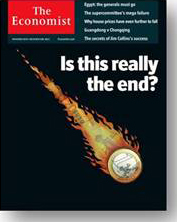 The Economist’s (London) image shows the euro as an asteroid, plummeting to earth. |
 The editor's photo was meant to illustrate that humanity has a bright future ahead. |
In the recent issue of VilNews I wrote that I do not share the pessimists gloomy predictions for the world's future, as I think the crisis is part of a necessary cleansing process. I am optimistic because I see that a whole new type of people is coming. New leaders. Many of today's children and young people.
What I see is forward-looking youngsters with good balance within themselves and their 'other dimension'; their divine origin.
I believe that ‘The land of smiles’ is under development. That new kids, a new human type, seem to have come to Earth with a special mission: to assist the Earth and its inhabitants in the transition and the 'rebirth' as a planet with higher awareness and better interpersonal understanding.
Aage Myhre
Editor-in-Chief
You are all welcome to participate in this discussion!
 |
Many believe that we will be entering the Age of Enlightenment within the next five years… Others believe that we have already begun to make this transition The time has come for us to move past the illusion of separateness Rather than judge one another, we teach our clients to go beneath the surface of a behavior that differed from their own to find deeper meaning. This led to under-standing and acceptance, more productive negotiations and perhaps even a shared knowing. When leaders and citizens remember to appreciate the Three Points of Connection, everything else will fall into place. We will know, from deep within, that to care for our environment is not only a privilege but natural because as we care for the earth we care for ourselves. We will know that going beyond boundaries of difference and age-old conflict enables us to make peace with our neighbors and co-create a world where children live happily and healthfully. And, when we return to source as the partner in creating our world, we will not falter in our ability to move towards a positive future that is inclusive of all sentient beings, as the great mystical traditions teach. Gather small groups in your organization and begin to listen deeply to each other. Better yet, take a walk outside and commune with Nature. Give thanks for the beauty that surrounds you and take time to smell the roses. All things will go smoother from there. Jurate Kutkus Burns, Florida. |
 |
You brighten up my day A very interesting article with a lot of insight regarding divinity and where we are heading, in this cosmic time of transmission to the age of Aquarius! You brighten up my day with very positive forecast. Hans Gyllenhammar, Swedish Ministry for Foreign Affairs. |
 |
The next generation will have a healthier more sustainable future because of the massive restructuring and pain we will have to endure in this past generation |
 |
We fear that without urgent action by the ECB, the euro will crash, doing untold damage not just to Europe but to the entire world economy Denial is not just a river in Egypt! Dr. Val Samonis, |
- Bookmark :
- Digg
- del.icio.us
- Stumbleupon
- Redit it
- Posted by - (3) Comment
Welcome to readers in
20 new countries!
VilNews keeps getting new readers in ever more countries. Since October, twenty new countries have ‘signed up’. It's incredibly exciting to see that Lithuania and ‘the Lithuanian’ is becoming increasingly better known in all corners of the world. We wish all our new readers welcome!
You are all invited to send us news and other matters that are related to Lithuania in the country or region where you live!
|
|
CAYMAN ISLANDS |
|
MALI |
|
|
EL SALVADOR |
|
GAMBIA |
|
|
TOGO |
|
MAURITIUS |
|
|
YEMEN |
|
ARUBA |
|
|
ANTIGUA & BARBUDA |
|
BARBADOS |
|
|
MACAU |
|
NAMIBIA |
|
|
BURKINA FASO |
|
VIRGIN ISLANDS |
|
|
DOMINICAN REPUBLIC |
|
BERMUDA |
|
|
JAMAICA |
|
GUAM (USA) |
|
|
BAHRAIN |
|
ZAMBIA |
- Bookmark :
- Digg
- del.icio.us
- Stumbleupon
- Redit it
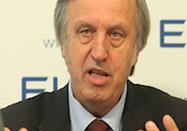
BY THE BOOK: Povilas Gylys isn’t worried by a Russia that tries to bend the rules, saying that the WTO needs to stick to its principles.
KLAIPEDA - While Lithuania was cozying itself up to Russia’s pending membership in the World Trade Organization (WTO), Russia’s apparent other pursuit - establishing the Eurasian Union, which is said to be the brainchild of incumbent PM Vladimir Putin - has taken it aback, making high echelon politicians newly speculative about Russia’s true goals.
“The post-Soviet Eurasian Union is an alternative and contra-argument to the European Union. Furthermore, it is a hurdle for EU expansion to the East. If Russia succeeds, the Eurasian Union will be just another variety of the Soviet Union. I see Russia’s drive for WTO membership and establishment of the Eurasian Union as deliberately entwined. As far as the pro-Russia Eurasian’s possibilities to use WTO membership as a political weapon are concerned, I would rather withhold from expressing my opinion. Let the boss [it remains unclear whether Landsbergis referred here to Lithuanian President Grybauskaite] figure it out,” the patriarch of Lithuania’s modern history, Vytautas Landsbergis, said to The Baltic Times.
- Bookmark :
- Digg
- del.icio.us
- Stumbleupon
- Redit it
- Posted by - (0) Comment
Lithuanian Company Among Five Most Innovative in Europe
Biocentras, a Vilnius-based producer of biotechnology products, entered the shortlist of final five in the European competition aimed at selecting most innovative biotechnology companies. Apart from the Lithuanian firm, the EuropaBio’s top five included German, Belgian and two Dutch pharmaceutical companies.
- Bookmark :
- Digg
- del.icio.us
- Stumbleupon
- Redit it
VilNews e-magazine is published in Vilnius, Lithuania. Editor-in-Chief: Mr. Aage Myhre. Inquires to the editors: editor@VilNews.com.
Code of Ethics: See Section 2 – about VilNews. VilNews is not responsible for content on external links/web pages.
HOW TO ADVERTISE IN VILNEWS.
All content is copyrighted © 2011. UAB ‘VilNews’.

 Click on the buttons to open and read each of VilNews' 18 sub-sections
Click on the buttons to open and read each of VilNews' 18 sub-sections 







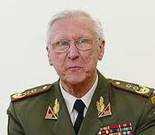











.jpg)



